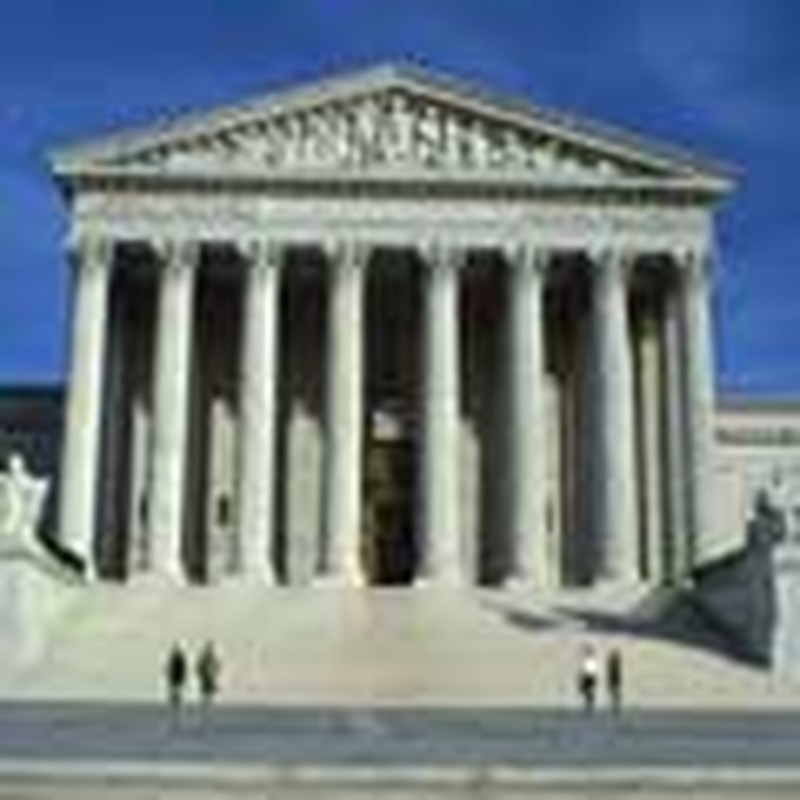Civics for the New School Year
- Mike Farris
- Published Sep 20, 2002

As our Founding Fathers knew, the principle of freedom is at the heart of any good system of government. But what does freedom mean?
A true understanding of freedom believes that our government should interfere in our lives as little as possible. Under this principle of freedom, we have the liberty to live under the constraints of God's moral law rather than under the regimentation of man's law.
When one understands the principle of freedom, we realize that every manmade law is the opposite of freedom. That's not to say every law is bad. Sometimes it's worth giving up freedom to get a little order. Our government, for example, sets speed limits so that people will drive in an orderly fashion. These types of laws simply allow people to live together in society.
Still, we must all keep in mind that whenever the government enacts a law, it takes away somebody's freedom. Lawmaking is serious business, and we're responsible for holding our lawmakers accountable to uphold rather than take away our freedoms. We ought to judge our lawmakers and political candidates not so much on what laws they pass but on what laws they defeat, and even more on what laws they repeal. Let's talk about another forgotten principle: the principle of moral government.
Moral Government
Our headlines are filled with the lack of morality that plagues American government at all levels. With the steady growth of government programs since the Great Depression, Americans have come to believe that the purpose of government is to hand out goodies. They don't care about the morality of the leaders--as long as the goodies keep coming.
In reality, the core purpose of good government is the execution of justice. The laws and enforcement mechanisms should be in place to protect our lives, our liberty, and our property.
Our Founding Fathers understood the true purpose of government. They also understood that in order for American government to succeed, it must have moral leaders. The framers of our Constitution presumed that our elected representatives would be men of high character.
If you want government to deliver you money, programs, and services, then you'll get more Bill Clintons for leaders--efficient service providers who live immoral lives. But if you want moral leaders, we must learn that God--not government--provides for our needs.
Self-Government & the Separation of Powers
Today, more than 2.5 million non-elected people work for our government, not counting military personnel. The workforce of the federal bureaucracy is responsible for thousands of tasks, taking in and distributing half a trillion dollars a year. In addition, the federal bureaucracy produces tens of thousands of pages of administrative orders and rules each and every year.
What's wrong with this picture? First of all, none of these bureaucrats have been elected by the people. Furthermore, federal bureaucratic agencies operate outside of the check-and-balance systems our founders worked so hard to create in the Constitution. A federal agency makes its own rules, executes its own rules, and even acts as judge of its own rules when they're violated. There is no separation of power.
This has got to stop. One way to do this is to insist that no bureaucratic agency have the final ability to make any regulation. Congress should have to approve, and the president sign, any regulations before they become final. Then, if we don't like them, we can vote to remove those in Congress who approved the regulations. Self-government demands that the people have the right to remove from office those responsible for trampling on our freedoms.
A burgeoning federal bureaucracy endangers the foundations of self-government. A second danger to the principles of freedom and self-government arises within the judiciary.
The authors of the Constitution wanted to keep the judiciary independent from the people. The founders reasoned that that way the judiciary could fulfill its responsibility to uphold the Constitution without being swayed by popular opinion.
The Supreme Court has the final say on whether or not a law or practice is constitutional. The Court's grab of political power is particularly dangerous because it's nearly impossible to change a Supreme Court decision unless the Court overturns itself. The people have no power to govern the Court.
Once the Supreme Court decides that the free exercise of religion is no longer a fundamental right, as it did in the 1990s, the people are virtually powerless to do anything about it. We can amend the Constitution and encourage the president and Senate to appoint better justices, but these measures are difficult to attain and take a great deal of time.
We need to consider some form of institutional checks and balances on the Supreme Court. Perhaps a form of term limits on the Court would work to achieve a limitation on the tendency of the judges to create law out of thin air rather than simply interpret the Constitution and laws of the nation.
Mike Farris is the president of Patrick Henry College (www.phc.edu) and chairman of Home School Legal Defense Association (www.hslda.org).




















